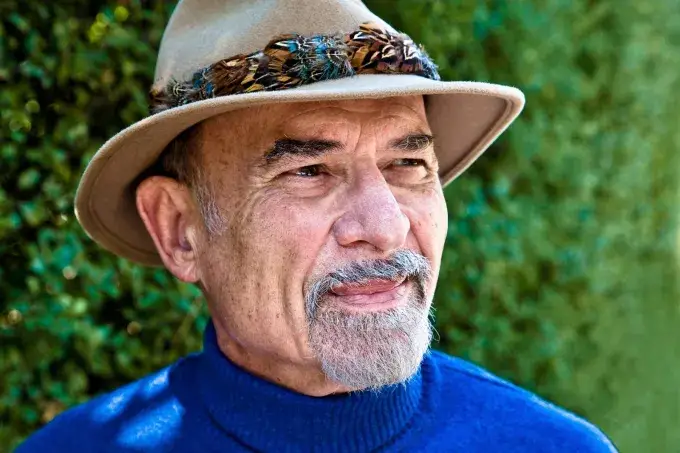A review of I. Yalom's book "Love's executioner"

Recognizing ourselves in the stories of ten strangers
It should be noted that this book was published in 1989, but has not lost its relevance to this day and, on the contrary, has become most relevant in our time.
Irvin Yalom is an outstanding psychologist, psychotherapist, and obviously a very talented writer. Although his works can hardly be called "fiction," there is something so light and at the same time interesting in them that makes you addicted to the characters and their stories. Even people who have recently started their journey into the world of books will most likely know the psychologist's book "When Nietzsche Wept", which tells about the mutual treatment of "body and soul" by Josef Breuer and Friedrich Nietzsche (if you have been avoiding it on the shelves, I strongly recommend giving it a chance).
In contrast, in "Love's executioner", the author provides 10 stories of different people with different problems in the field of love. For most of us, love is something beautiful, desirable, magical, pink, floral, sweet, exciting, incredible, and just beautiful. But in this novel, we will talk about the side of love that no one would like to see — addiction, pain, hatred, fear, separation, death, life "before" and "after".

The book's title is Love's Executioner because that's what I. Yalom calls himself, who throughout his practice (it's worth noting that Irvin Yalom is now 92 years old) has met a considerable number of patients with certain problems in the field of love. This applies not only to ordinary, romantic love, but also to self-love, love for loved ones, sexual/passionate love, hatred for everyone in the world, excessive love, insufficient love, and more.
Plot
The story is based on 10 patients of different ages, genders, and life circumstances. Each person has certain character traits that he or she considers normal, and the psychologist considers an early stage of insanity. No wonder, most of the psychologist's patients start their visit with the phrase: "I never thought that I would be sitting in front of you and telling you all this".
In the preface, the author touches upon such concepts as death, fear, freedom, uniqueness, and especially emphasizes desires. After all, we all want something from this life, and even when we want nothing, we still hear something like: "I want nothing but peace in this life." This means that there is still a desire and aspiration for something.
By the way, for those who like to think about words and formulate their own judgments based on their own thoughts, I will leave a list of quotes at the end that are worthy of attention.
Characters
1. The first patient is Thelma, who has a husband, but is in love with a young psychologist-practitioner and thinks about him every day without being able to leave her dreams and fantasies.
2. The next is Carlos, a man with cancer who has recently discovered group therapy and has already managed to turn the group against him. He is famous for his vulgarity and unhealthy desire for sexual relations with every woman he meets.
3. The third is Penny, a strong and yet weak-minded woman who cannot accept the loss of her daughter and is gradually losing her other two children and her husband.
4. Betty is an overweight woman who is trying to find friends and overcome her "uncontrollable eating". The most interesting thing about this story is that the author is incredibly repulsed by fat people...
5. Elva is an old woman who does not change her life and cannot dare to make these changes, and she also personifies the words "anger" and "hatred" for everyone except her late husband.
6. Dave — or "the secret of love letters". For a long time, he kept this secret, but after a certain event in his life, he decided to tell his psychologist about everything. His example clearly shows the burden that a person with a secret carries.
7. Marie is a woman of exotic appearance who has also suffered from grief over the loss of her husband. Inaccessible and upset, her smiles hide something completely different from what you think.
8. Saul — embodies a hypersensitive and anxious person who cannot live a day without obsessive thoughts and creating additional problems for himself out of the blue. He is also extremely insecure and indecisive. It is worth reading for anyone who has ever had problems with decision-making and an excess of unnecessary thoughts.
9. Marge is a woman with prolonged depression, behind which lies a long list of problems from early childhood. She fights with herself for survival, and "it's only a matter of time before she commits suicide".
10. Marvin is a man who suffers from unbearable headaches. Moreover, Marvin turned to a psychotherapist with his problems, not believing that he would be helped and questioning I. Yalom's skills.
The book ends with an equally interesting afterword, which the author wrote 25 years after writing the book itself!
Style
The author is known for his simple writing style without censorship and clarity of the text. For example, in this work there are no complex terms, incomprehensible language structures and a certain heaviness that is often observed in books of psychological genres.
Sometimes you even get the feeling that Irvin Yalom is sitting in front of you and telling all these stories personally. The words easily penetrate the consciousness, and the stories of the characters remind you of your own problems and make you think about life.
Mild criticism or "weaknesses"
Given the fact that the book was written in the last century, it contains words or phrases that may offend or cause unpleasant feelings. For hypersensitive people, the book should be adapted to modern realities. But if you have a share of self-criticism, you can start familiarizing yourself with the author and his works without hesitation. There are also certain age restrictions: 13 years and above. People who suffer from any mental disorders should read with caution so as not to provoke unwanted actions.
Conclusion
If you have already read almost all the books of classical literature, have gotten acquainted with an array of other genres and no longer know what else you can add to your own collection — I. Yalom with his works based on human existential problems, on compassion and indifference, on love and hate, on dreams and reality is the best choice.
You should definitely think about what you have read and draw conclusions for yourself based on the stories of these 10 people who, in despair and hopelessness, turned to help.
Quotes for the curious:
"Every decision a person makes requires giving up something: for every 'yes' said, at least one 'no' must be said".
"Beware of deep affection for someone: it is not, as most people believe, proof of true love".
"The best way to prevent a negative reaction is to anticipate it".
"Life is worth living right now, it cannot be postponed indefinitely".









